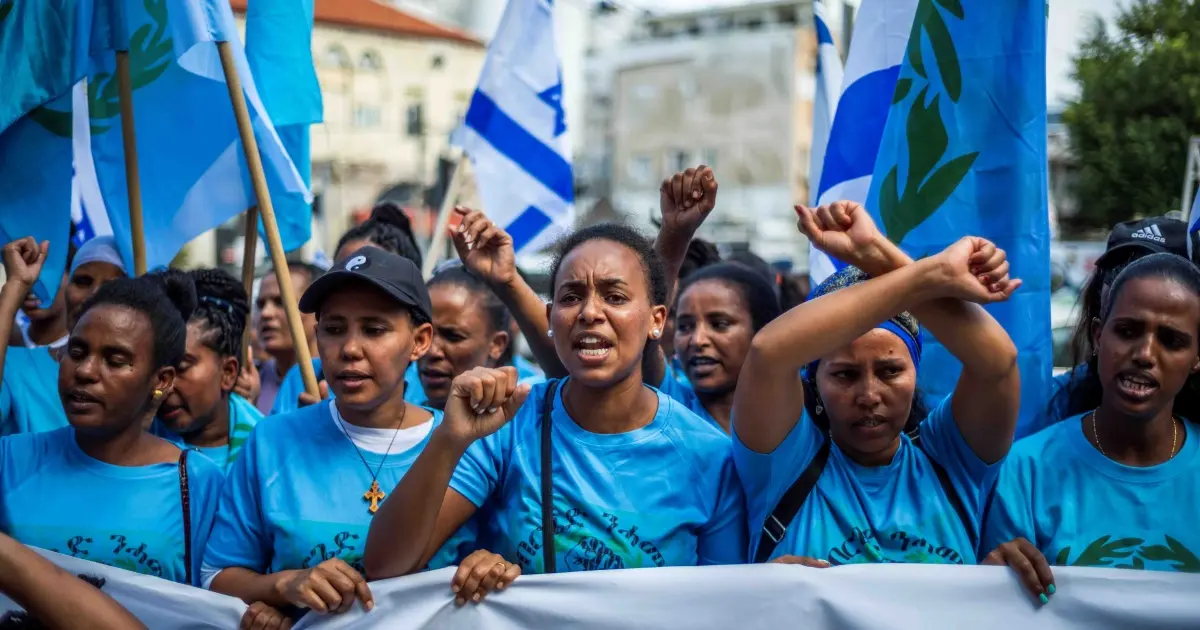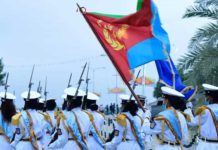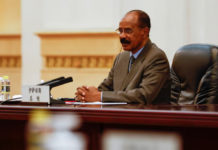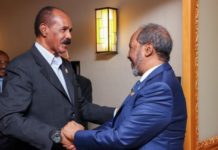At the 56th session of the UN Human Rights Council today, Release Eritrea presented a powerful statement underscoring the severe human rights violations faced by the people of Eritrea and Tigray. The presentation emphasized the ongoing religious persecution in Eritrea and the atrocities committed by Eritrean forces in Tigray.
Thousands of individuals in Eritrea, including journalists and religious practitioners, are subjected to arbitrary detention without charge, often in inhumane conditions. The freedoms of expression, assembly, and religion are virtually non-existent, with any form of dissent brutally silenced. The indefinite national service policy is particularly oppressive, driving mass migration and contributing to a refugee crisis.
Religious persecution remains rampant in Eritrea. The tragic death, in prison, of Reverend Ghirmay Araya, imprisoned for his faith, is a stark reminder of the ongoing religious oppression. In April, 30 Christians were forcibly removed from their homes, part of a persistent pattern of persecution spanning two decades.
The conflict in Tigray has compounded the suffering. Eritrean forces have been implicated in severe human rights abuses, including mass killings and sexual violence, which may amount to crimes against humanity. The involvement of Eritrean forces in these atrocities demands immediate international scrutiny and accountability. Such actions underscore the need for Eritrea to ratify the genocide convention and adhere to its obligations to prevent further atrocities.
Dr. Selam Kidane, Director of Release Eritrea, stated, “It is an honour to carry the voices of those who suffer in silence, and it is a responsibility for all humanity to respond, as these are crimes against humanity. We must intensify our efforts to hold the Eritrean government accountable and press for tangible improvements.”
The statement called upon the UNHRC and the international community to intensify efforts to hold the Eritrean government accountable. The ongoing monitoring by the Special Rapporteur and mechanisms like the Universal Periodic Review (UPR) are crucial for ensuring scrutiny and accountability. While Eritrea has shown some engagement with the UPR, sustained international pressure is essential for meaningful compliance and reform.
The issues raised resonate with those highlighted by the Special Rapporteur on the situation of human rights in Eritrea, indicating a consensus about the dire situation in the country. The consistent reports of severe human rights violations, arbitrary detentions, and the lack of fundamental freedoms paint a grim picture that cannot be ignored. This consensus strengthens the call for urgent and decisive action by the international community to address these violations and hold the Eritrean government accountable.
Dr. Kidane also extended heartfelt thanks to colleagues at Release Eritrea and the Centre for Global Nonkilling for their incredible support. “Their dedication and hard work have been instrumental in amplifying the voices of those who suffer in silence. Together, we continue to strive for a world where human rights are upheld and every individual can live with dignity and freedom.”







